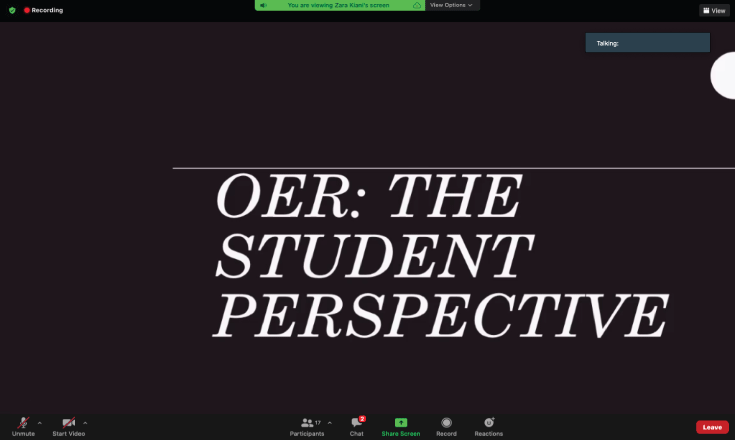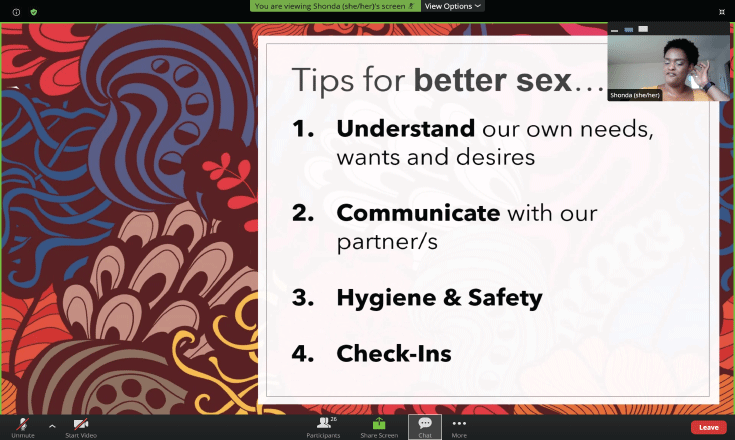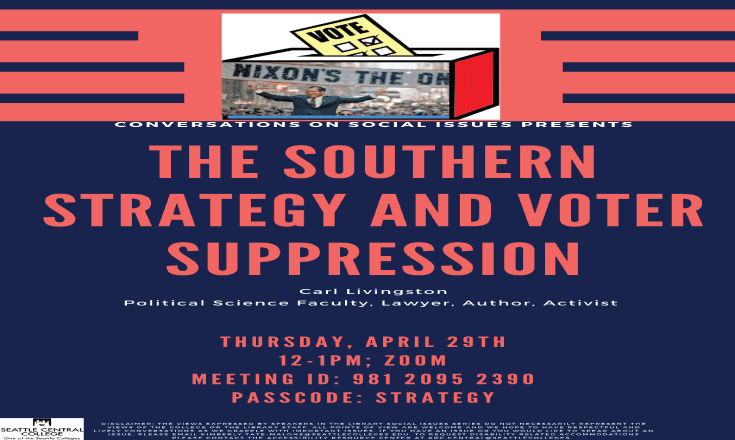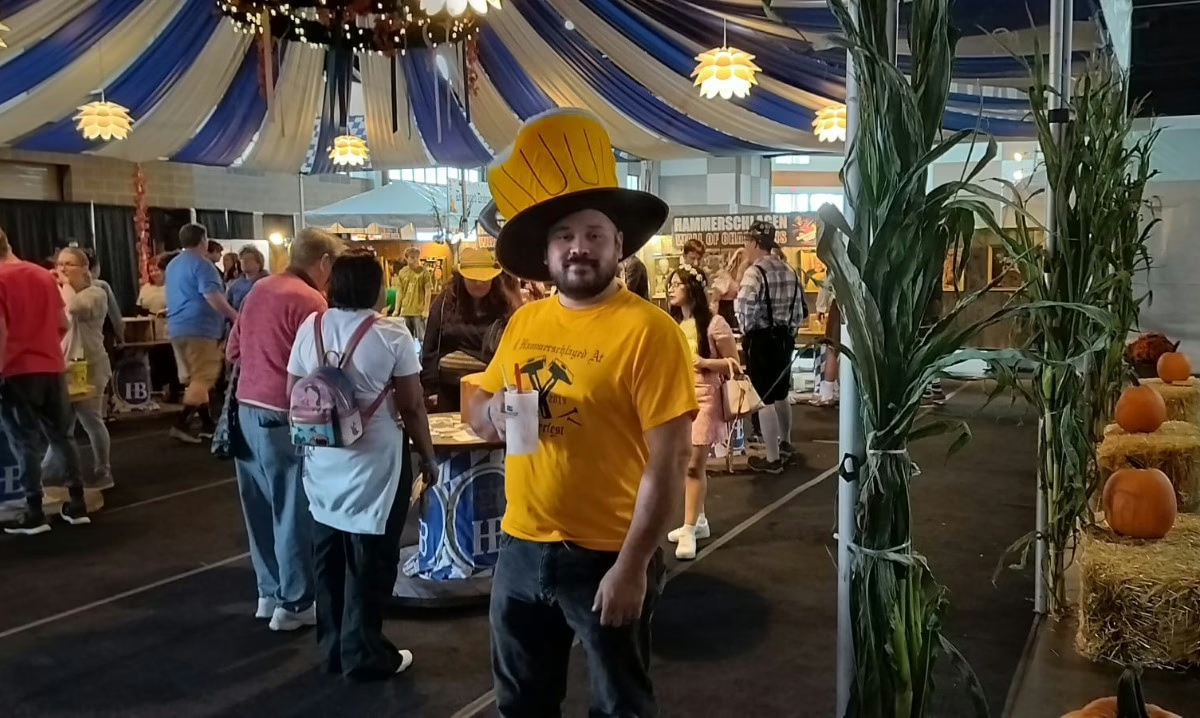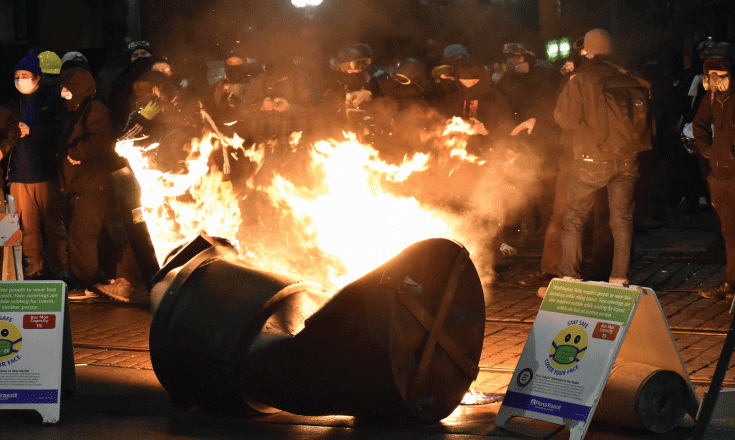COSI – Open educational resources: The student perspective
This Thursday, Central hosted another Conversations on Social Issues (COSI) discussion, called “Open Educational Resources (OER): The Student Perspective.” The Zoom event was held by Robert Selfe, Associated Student Council’s Executive of Student Success, and Zara Kiani, Associated Student Council’s Associate of Student Success. The talk focused on the issues that students are facing like paying for costly textbooks, and how open source materials can lower the cost of class materials and other resources for students’ success.
The discussion began with a brief introduction by Centrals’ library staff, Kimberly Tate-Malone, who then passed the mic to Selfe.
Selfe told attendees a story of a student who couldn’t go to school because of overpriced textbooks. Soon after, Kiani added on to the issue that students struggle financially with both tuition and the extra cost of textbooks.
Kiani also explained that the access to knowledge for students should not be what she described as “exclusive.” The discussion continued by opening up polls to students. The results showed most students tended to withdraw from classes that had additional course materials that were over their budget. The poll also showed that a high percentage of students pay $51 – $150 for course materials each quarter.
Kiani emphasized that the open source material is freely available and can be easily distributed. The most important thing is there’s no cost to faculty or to students. The open source material can be modified so that faculty can update students so they will not be likely to fall behind in class.
Open educational resources can also be redistributed by faculty who have made changes to the original OER work. The most important benefit of OER is the removal of the cost of course materials, which Kiani expressed as a “game changer” for students because it increases opportunity for people to enroll and remain in school, no matter their economic status.
Faculty can customize their own material and make their own curriculum, which allows faculty to use materials such as textbooks, syllabi, assignments, and exams enhanced by educators all around the world without having to build them from scratch.
The most concerning question students had was, “well how is this going to change the learning for me?” Kiani responded that students are able to find resources for cheaper versions of textbooks and online PDF documents for free.
The discussion continued with Malone opening breakout rooms for students to discuss their experiences with one another. Afterwards, Malone shared her experiences with Health-Science students that experienced having to spend their personal funds, meant for needs such as food and clothing, on the costs of textbooks and lab fees to be able to stay in the program.
Malone also mentioned there’s students coming into the library if they have the specific textbook, but sometimes the library has the older version and some students are unsure if it is acceptable.
“I would help the students by asking their faculty, but they would say no, and I would ask what’s the difference and most of them couldn’t give a good answer” expressed Malone.
The discussion ended with Kiani promoting the resources for students who would be interested to be a part of the OER plan, through the OER committee, the Student Success Committee, and the Student success committee.

A young STEM student aspired for Mechanical Engineering and a staff writer at the Collegian. She's interested in design, machines, and the advancement of technology. Her dream is to use her design and technology skills to achieve a significant role in a dominantly male field. She enjoys playing video games, cooking, and mostly spending her time studying.

